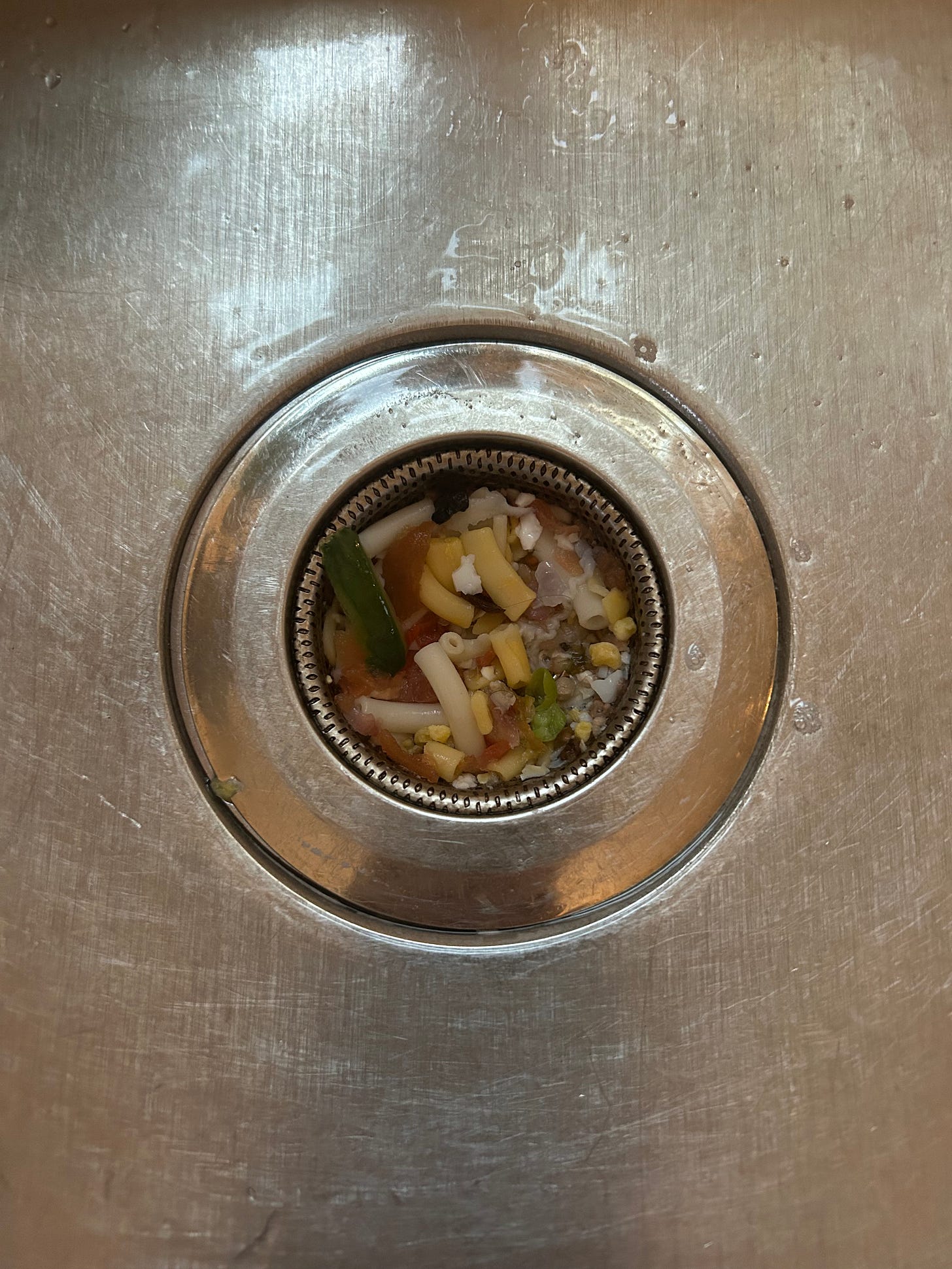
My husband would often infuriate me in the following manner: I would spend the better part of an hour cleaning up the kitchen after a big meal. I would clean all but a few things - maybe one or two cooking pots and a salad bowl. Bed time rolls around, time for children in their pjs, and he says, “I will be up in a bit - I have to clean the kitchen.”
This would make me SO MAD! How very dare he pretend that he was cleaning the kitchen, when I had already cleaned the kitchen, all but a little bit. It was as if he, by merely finishing up my job, was claiming credit for the whole thing. This happened often.
An old roommate had an even more stringent standard for cleanliness. Before I moved in she warned me: “If you do the dishes, and you don’t clean out what’s left in the dish drain, it will be - to me - as if you hadn’t done the dishes at all. So, if you aren’t going to clean out the dish drain, I would prefer you don’t do the dishes in the first place.”
One might ask why I am disinclined to simply finish the job. That can be explained by a type of x-ray vision, the side effect of an artist’s eye. You see, my powers of visual imagination are so strong, that I actually see beyond mess and clutter, to the clean surfaces beneath.
My husband, unfortunately, cannot do this.
And he will tell you that pure laziness is to blame - “that’ll do” syndrome. The same thing that had, for so long, allowed me to maintain a skim-coat of clutter on most of the surfaces throughout the house.
Happily for him, I have come to realize the importance of cleaning down to zero: getting surfaces completely cleared of everything but what should live there. Even if the visual chaos doesn’t bother me, I’ve learned that any amount of clutter hinders cleaning, because I am very unlikely to remove what’s on the surface to clean what’s underneath. That, in turn, leads to the buildup of dust and hairballs in dry environments, and mold and slime-based life forms in wet ones. Which hinders cleaning further still, because I do not wish to touch, or be touched by, such substances.
Take the example of a kitchen sink housing various items around the faucet: dish detergent, dish brush, sponge, nail brush, a little saucer that holds something that may or may not be soap, a key (put there for some reason) and maybe a small statuette for decoration - all of these things are nearly impossible to clean around. So I used to let them stay put, acting as sentinels guarding the area at the base of, and behind, the kitchen faucet. Slime molds would develop, to be removed on a semi-annual basis, when I got up the nerve to deal with them.
Some time last year I became aware of the cyclical futility of such habits, and I changed them. The clutter went first - all superfluous items removed from the base of the faucet, the cleaning implements put in a caddy (which gets cleaned once a month) and now the area behind and around the faucet gets wiped down every day or two (because slime molds move fast).
I also now recognize the benefit of finishing a cleaning job. I have accepted the fact that clutter is magnetic - stray papers and dirty dishes like to have friends - so its better to deal with it right away, rather than let it linger. And even though I still have my powers of artistic x-ray vision, and it might pain me a bit to admit it to my husband, I have come to appreciate the fresh, calm feeling transmitted by a clear table and a clean dish drain.
FULL DISCLOSURE! Sometimes I include Affiliate Links in my articles. This means that if you purchase an item from these links, I will receive a small commission. I only ever recommend items or companies that I have used and am VERY happy with - and if I ever link to an item that I haven’t used, I make this clear in the article.




